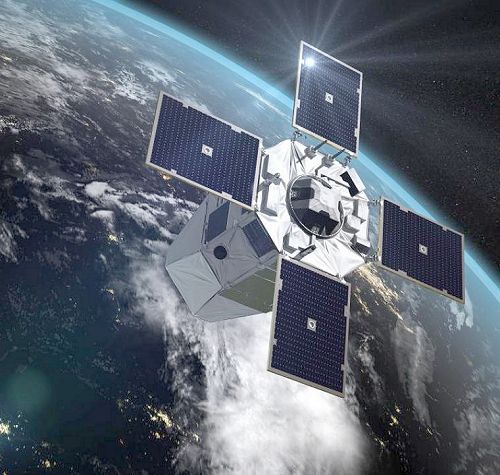LAUNCH OF THE SP-FRENCH SATELLITE COS-1 |
|
"We are witnessing a democratization of space, with the arrival on the market of small and cheap satellites and launchers and more and more countries are equipping themselves. We are in a competition for access to space ", explains General Michel Friedling |
|
|
Since October 2011, Soyuz launchers have been fired from the Soyuz Launch Pack (ELS) located in the commune of Sinnamary, 27 km from Kourou, and about 13 km from Ariane installations. Every year, at least four Soyuz shots are fired from the Guyanese site. Eight have already taken place this year and the last one has just been realized this Wednesday afternoon with the French observation satellite CSO-1 (Optical Space Component). This satellite, which will provide very high resolution images, will be joined by two others, in 2020 and 2021, to form a constellation to replace the current French military observation satellites Helios 2A and 2B. Expected to last 10 years, the constellation will cost 920 million euros, and 1.4 billion euros with the ground segment. This latest Arianespace launch of 2018 is of major importance for the French defense. It is part of the space projects of the French Military Planning Act (LPM) 2019-2025 which provides for a significant budget of 3.6 billion euros for the defense space. These shooting satellites ensure the operational needs of the various armies in terms of intelligence, whether it is the surveillance of risk sites, compliance with international treaties or the global strategic intelligence function. The information collected by these observation satellites on the geographical environment makes it possible to prepare the missions as closely as possible. Thus these satellites made it possible to locate the caches of Daech in the Levant. "Space intelligence also allows for political autonomy," said General Michel Friedling, commander of the Joint Space Command. "In 2003, when the war entered Iraq, we had our own images. Which allowed to question the American speech, and from there, our authorities decided not to intervene " In a competition for access to space, a new field of confrontation, innovations in military defense are indispensable. |
|
| Paul Emison for DayNewsWorld | |
 |
|




